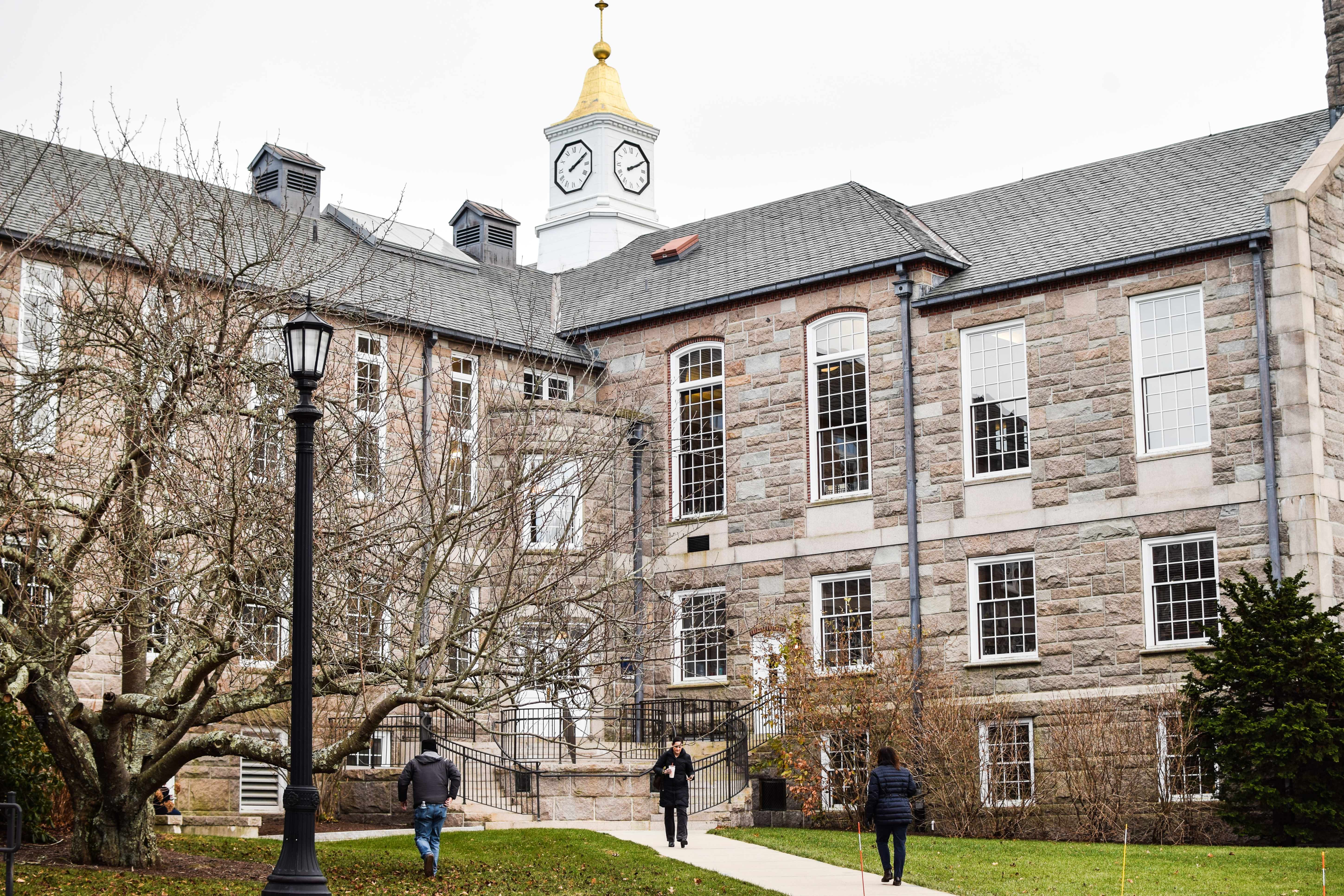Photo by Joseph Lachance | The university is being awarded for their tremendous increase of degree completion.
The Association of Public and Land-grant Universities has named the University of Rhode Island as one of the top five national finalists for an award celebrating a tremendous increase of degree completion.
With the other four finalists being Arizona State University, the University of Memphis, Wayne State University and the University of Nevada, Reno, the award seeks to recognize public institutions that have made outstanding enhancements regarding degree completion while simultaneously providing a quality education.
URI’s University president claimed that from the start of his presidency in 2009, he was fully aware of the potential for vast improvements.
“I certainly thought it was possible,” Dooley said. “I saw great people there, and the state of Rhode Island was interested in seeing the University become a leader for other public universities. The University of Rhode Island was a place that had so much potential to be better, with a big potential to have a huge impact.”
Starting his career at an elite private institution, Dooley explained how it was made clear to him that the majority of Americans gain their education through public institutions. As a result, it became a goal of his to make public education equivalent to the best private education.
In his efforts to achieve this, strides towards the enhancement of degree completion had to be taken. Over the past nine years of his presidency at URI, many different alterations and improvements have been instilled.
“One of the things that got us noticed was the developing of coordinated systematic strategies,” Dooley said. “We changed the financial aid model to provide more aid to students, instituted much more rigorous tracking of student credit completion, instilled guided pathway curriculum maps, have done a lot to improve teaching and the office of advancement and learning has helped faculty improve skills.”
On top of these advancements, Dooley also emphasized the complete reworking of the general education course system. In this process, he has made it a priority to design these courses around skills that students should enhance, facilitating an environment where it is much easier for students to make progress towards their degrees.
In these efforts, professional advising has also been enhanced to guide students in the right direction along with the introduction of the Center for Career and Experiential Education. Additionally, J-term and enhanced summer courses have been introduced as well.
Still maintaining the original goal of making public and private education equal, the University has much more in the works to not only improve the education and lives of students and Rhode Island residents as a whole but provide a model for other public institutions to facilitate a national step towards degree completion.
“Change the state, change the lives, become a national model,” Dooley said.
Donald H. DeHayes, provost and vice president for Academic Affairs, also discussed advancements he has seen throughout his 11 years at the University and how he believes these resources have guided students in the direction of degree completion.
DeHayes stated, “If I had to pick one item that was critically important, I would say it is our strategic investment in financial aid so that student could not only access our university but also have the resources provided by the institution to make sure that they can stay and continue to pursue their academic studies.”
On top of this advancement, DeHayes also explained that credit monitoring is another very important resource that he believes has had a great effect on degree completion. “If there was a second area that I would say is critically important, I would say it is the very careful monitoring of student credit completion by semester,” DeHayes said.
While DeHayes is understanding of individuals having very different learning habits, he believes that the academic advisors and the University’s easily accessible winter online J-term and summer courses allow students to learn at their own pace without falling behind.
DeHayes also elaborated on the increase in freshman credit completion, explaining how 10 years ago, only 45 percent of URI freshman had completed the required 30 credits in order to graduate on time. Currently, 75 percent of URI freshman are actually able to obtain the credits they need to stay on the right track and graduate on time.
In regards to the future, DeHayes and Dooley both express their passion for driving the University down a pathway of even greater success. Dooley explains that the University has complete intentions of working harder than ever to constantly improve degree completion.
“We are not going to take our foot off of the gas pedal,” he said. “We are an institution that constantly wants to improve.”

